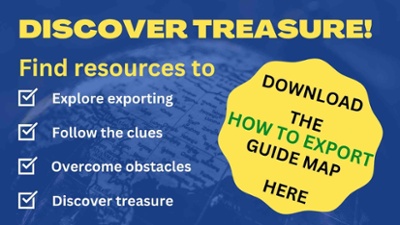Listen to Audio Version:
As your organization enters a new market it’s critical to think about your product or service, the narrative behind it, and whether that needs to change in any way to match the new market’s demands. The fundamentals may not need to change, yet the details and execution may require attention. Does your plan “translate,” or do things need to be adapted? For example, does your strategy need a change because of culture, language, logistics, or technology? All these elements are important to think about as you create a go-to-market strategy.

Imagine that you work in the national intelligence community. To best form a complete sense of the place or environment you are studying you need to create a comprehensive picture of the situation, fitting information from analysts, cryptologists, technologists, and other experts together like a puzzle. To fill in missing information demands extensive research and live interviews with locals, as well as overhead flights and technological analyses. These methods of astute research and preparation about a particular environment incorporate tools and techniques that can also easily be used to prepare for a global organizational launch.
In the Global Marketing Show podcast #9, Stephanie Hendricks, Vice President of Operations and Customer Success at Voltus, a demand response energy company, explains that preparation and research are key to the planning process. By reflecting on your organization’s current model, you can determine how to leverage your current capabilities.
“The exercise itself of reflecting and considering can be very valuable,” she notes. “It will show you how to use your current abilities and potentially open up new ones.” A former naval intelligence officer, Hendricks’ experience as a counter-terrorism analyst in Bahrain gave her a unique opportunity to observe some of the differences between Saudi Arabia and Bahrain, especially regarding women and local customs. These insights informed her approach as an intelligence officer and gives her a broader perspective in her work in the business world today.
Opportunity First, Language Second
Naturally, deciding where to expand geographically is a complicated, difficult question that will differ for each organization depending on its products or services, potential growth opportunities, connections, and language abilities. So how should you go about deciding? Hendricks emphasizes the importance of first considering your company’s growth and opportunities, and language issues second. When Voltus first looked at expansion beyond the US and Canada, the company researched several countries with a strong market for demand response, starting with Mexico, Japan, Poland, and Australia. Ultimately, they chose Australia because the CEO had worked there previously and knew there was opportunity for growth. They also understood the local market and knew they could easily scale their business there.
The fact that they spoke English was also a bonus, meaning that no one had to learn a new language to keep the business operating. Voltus would still hire a local team in Australia to help run things more smoothly, but had they chosen Japan, on the other hand, the language transition would certainly have been more challenging.
In our case, choosing Australia was a blend of the alternatives, notes Hendricks. We knew we could find local partners on the ground who could use our name and leverage our go-to-market team. We could start small and leverage our assets. Language certainly played a role in our decision. And we still needed to consider language issues in our rollout, such as: Do we need an alternate website? What are the local rules? What form of English do we need to use? And what kind of technical hardware do they use?

Go-to-Market Questions
Many organizations seem to fear handling local and regional culture when considering an international expansion. Some of the many questions to consider before beginning a global expansion include:
-
Are you the company of record?
-
Do you need to hire or acquire smaller, local market teams to help with the rollout, even though they may not be as experienced in the overall business?
-
What are the hardware and logistics requirements? These areas often bring up questions that are the trickiest to solve.
At Voltus, the company leaders did not run from the challenge. In fact, they embraced it:
"In our case, because we build our own hardware in Texas, we had to determine how much it would cost to ship that to Australia. And depending on the outlets there, would we need new equipment? What was the Wi-Fi/cellular situation? All of these seemingly silly questions became very important," says Hendricks.
The important thing is to ensure that you consider these factors before you start on a rollout.
Creative Problem Solving
When conducting market research, finding the best local talent possible is paramount to creating your ideal team. But keep in mind that you don’t necessarily need to eliminate employee talent because of language limitations. “Location, or being remote, does not matter as much to our company,” notes Hendricks. “It’s all about creative problem solving. If you have a great team of translators, you only need to speak one language.”
Research the local culture wherever you are trying to do business. Even customs in the U.S. and Canada are not always the same. For example, the marketing practice of cold calling to generate new leads, while prevalent in the US, is not practiced in Canada. Instead, Canadian companies use HubSpot more frequently, following local regulations. In Europe, Canadian organizations will email rather than call for leads, and contacts can then choose whether they want to opt-in to a mailing list. Being aware of such local differences is important when generating leads.
Consider: how has your company traditionally been generating leads? Could those same tactics be deployed in the new country? Make sure that your strategy translates to the new environment. If not, your go-to-market strategy could be turned completely upside-down. Think about how different words or terms may translate and if you can’t employ certain tactics, how could you adapt them to the new environment? A translator or interpreter can help smooth the transition.
Most importantly, as you and your organization evaluate whether and how to go global, reflect on your current model. It may be quite powerful and can open new markets in your current country. Moreover, the exercise of reflection is very valuable in and of itself and will show you how to leverage your current capabilities, potentially revealing entirely new ones.
Rapport International specializes in multilingual communications, providing language translation and interpretation services that are accurate and culturally appropriate. We use the right voice and the correct terminology to avoid liability, customize services to your needs, and deliver on time and within your budget. With our 100% satisfaction guarantee, you can trust that it’s done right. Contact us today if you would like more information or to get a free quote.
About the Author - Hannah Pentz
Hannah Feldman Pentz is an experienced marketer and content communicator, especially for professional services, business to business, and inbound marketing. She has extensive experience working with management consulting firms, helping them to create and implement marketing plans geared toward Fortune 500 global companies, as well as smaller non-profits. A graduate of Vassar College, (B.A., English) Hannah and her family live in the Boston area.
Rapport International specializes in multilingual communications, providing language translation and interpretation services that are accurate and culturally appropriate. We use the right voice and the correct terminology to avoid liability, customize services to your needs, and deliver on time and within your budget. With our 100% satisfaction guarantee, you can trust that it’s done right. Contact us today if you would like more information or to get a free quote.
Popular Posts
Popular industry news, interviews, technologies, and resources.


















